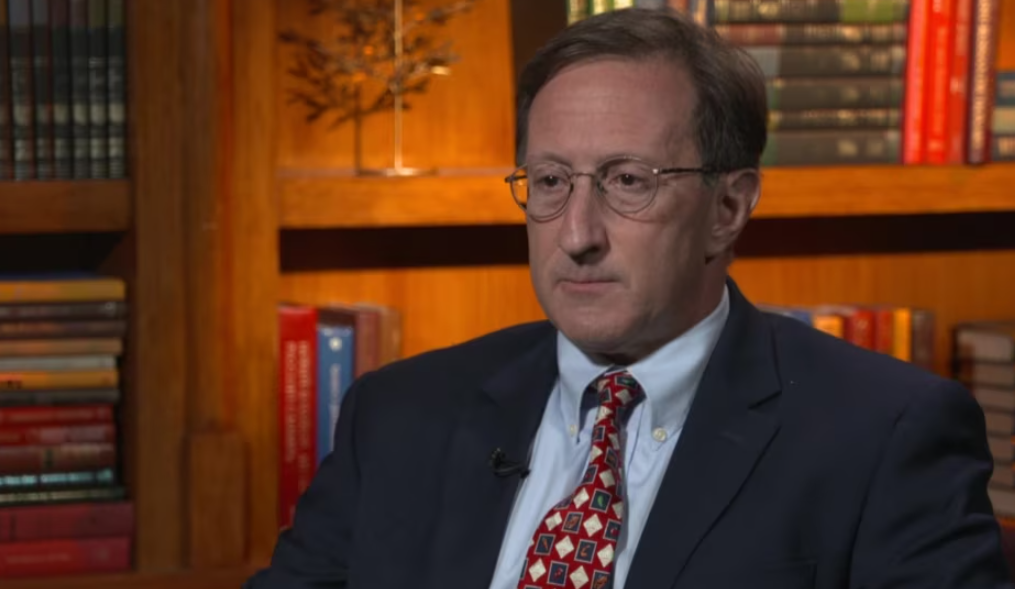In an interview with Voice of America, one of the authors of the report, Jason Steinbaum, who was previously an advisor to the Chairman of the U.S. House Foreign Affairs Committee, Eliot Engel, told colleague Garentina Kraja that the Association process, which is the key issue that has caused the most friction between the United States and Kosovo, has been politicized, and that a constitutional path, through which the municipalities themselves can create the association, is a way out of the deadlock.
Voice of America: Mr. Steinbaum, in your new report co-authored with Professor Paul Williams, you concluded that the demand to create the Association of Serb-majority municipalities in Kosovo is unconstitutional and should not proceed. However, the creation of the Association is central to the efforts of the United States and the EU to normalize relations between Kosovo and Serbia. Why do you think they are wrong?
Jason Steinbaum: Our report outlines the process set out by Kosovo’s Constitution, and Kosovo’s Constitution presents a process under which only the municipalities have the authority to create associations. So, if they want one, according to our analysis of Kosovo’s Constitution, then they should create it. They can establish the association at any moment they wish, regardless of what the international community, the Kosovo state authorities, or the Serbian government say, or the dialogue process. They have the authority to do so right now under Kosovo’s Constitution.
An important point of our report is that the municipalities have the competencies to create the association. But in order for the municipalities to take this step, they need elected officials, which means that the local Serbian community must participate in elections with candidates. They have boycotted elections, mostly driven by Belgrade in recent years. But I hope that in the future, they will decide to run in elections for these local governance posts. And if they want to establish the association, then through these democratically elected officials, they will have the competencies and the officials to do so. It would be a double victory for the community, for Kosovo, and for the international community, because they would gain their association, but also their elected officials, whom we all want to see run in elections and take office.
Voice of America: However, what you refer to as the “constitutional path” has been bypassed by the European Union and the United States. Why do you think this happened?
Jason Steinbaum: I think they are all people of goodwill. I think they want to help a community establish an association, which they said they want, and that is not a bad thing. These people mean well for Kosovo and for the people living in these towns in the northern part. But I think it is perhaps more appropriate for the United States to adhere to the rule of law, to follow the Constitution, which, to be honest, they helped draft. We participated in drafting that constitution. So, perhaps it’s time to return to it and review it, and ask ourselves, ‘What has worked in this process, what hasn’t gone well, and how can we help this community find solutions as outlined by the Constitution?’
Voice of America: Do you believe that perhaps the process has been politicized?
Jason Steinbaum: The Constitution envisions a process where municipalities make the decision to establish associations or join them, as has already happened with the creation of the regular association of municipalities, which the municipalities themselves established. But by making demands on the state authorities in Kosovo, this, in a way, makes it part of the political process. In fact, more than ten years have passed, and the governments of Kosovo, led by four political parties, have not done this. Frankly, perhaps it’s time to take a step back and see what the law says and maybe find a way to act by removing the pressure, depoliticizing, and softening the emphasis placed on it.
Voice of America: Several governments in Kosovo, including the current one, have agreed to create the association. Do you blame the government for pulling back from an issue they previously agreed upon?
Jason Steinbaum: It’s not their competence in the first place, according to the Constitution. Kosovo confirmed it would happen with the 2013 agreement. In that agreement, ratified by the assembly, the government said there would be an association of Serb-majority municipalities. They did not establish it. (If they had) they would have violated the Constitution, but they expressed their intent, and that’s fine. That agreement also said it would be established and its statute would be written in the same way as the regular association of municipalities, which the municipalities themselves create. I don’t think the government actually has the competence to do such a thing. I understand the argument and the criticism, but I think there’s a better way to do this, to return to and review the Constitution.
Voice of America: Nevertheless, this issue of the association has become one of the main disagreements between Kosovo and the United States, though not the only one. This relationship, according to many observers, is at its lowest point. Do you share this assessment? What is your view?
Jason Steinbaum: I think U.S. and Kosovo interests align in the long term. Our peoples are close, and the values of our two states are almost the same. There are disagreements between the governments, and that is not something we address in our report. I know there are some disagreements, which have escalated, but they are not the focus of our report. We see a way out, a constitutional process, to resolve one of the most difficult issues where there is disagreement.
Voice of America: What do you think is the way forward, not just regarding the Association, but the dialogue process in general? What is your advice to the mediators involved in this process? The U.S. government has just appointed a new mediator. You have been engaged with the region for a long time…
Jason Steinbaum: I think we are currently at a moment when the international community, the U.S., and the EU can wait a bit. There are elections in the U.S., there will be elections in Kosovo. There are key officials being replaced, including our envoy, as well as the EU ambassador to Kosovo, and I believe even Mr. Lajcak. There will be changes in individuals. Sometimes new people can bring new ideas and approaches, and perhaps this is also a way to pause. And then with the arrival of new governments and new people, we can look at this issue from a new perspective and try to see what is happening from a constitutional aspect.
Voice of America: For over a decade, there has been an ongoing dialogue process to reach a negotiated agreement between Kosovo and Serbia. Do you think there is really a desire to reach a negotiated agreement?
Jason Steinbaum: I’m not entirely sure. I think both parties are in a significant deadlock. I don’t see the interest from the Serbian government; I’m not sure they see it as in their interest to reach an agreement. They say they oppose a sovereign Kosovo, and reaching an agreement does not seem to be in their interest. From Kosovo’s perspective, they want an agreement now and recognition, and that doesn’t seem likely to happen in the near future. Dialogue is always a good thing. Finding solutions to functional problems between countries is a good thing, so I hope it will continue. I hope it will not focus too much on areas that are entirely within Kosovo’s sovereign territory and part of its sovereign decision-making authority.
Voice of America: How realistic is it to expect the participation of Serbs in elections given the current situation, whether it be the current tensions or last year’s incidents, including the armed attack in Banjska? That Belgrade will encourage them to participate?
Jason Steinbaum: I don’t know the answer to that question. I think it could happen with greater encouragement from the international community if they say that your future is in your hands rather than placing it in the hands of the dialogue or particularly the government in Belgrade, because they don’t govern there, or the government in Pristina.
The Ahtisaari process envisioned local control and competencies for the municipalities, and I think as that process developed and turned into a constitutional approach, maybe we’ll find a new way to resolve this, or find a new path forward that will ease the emphasis placed on (the Association), depoliticize it, and remove the tensions surrounding it.







